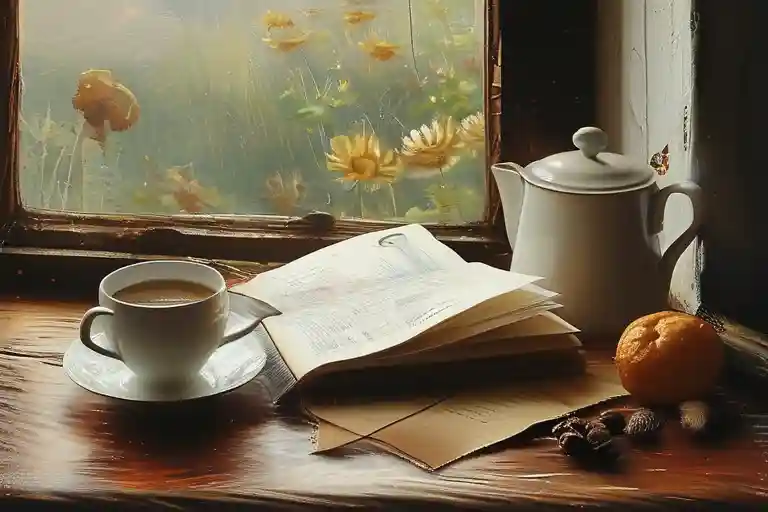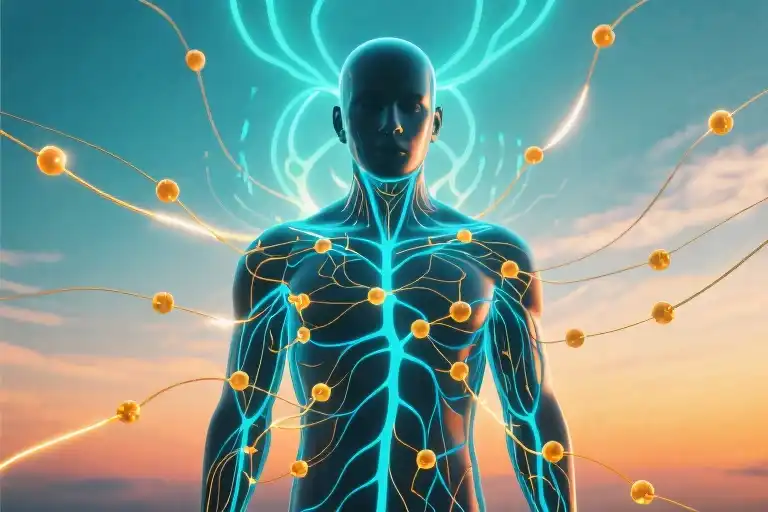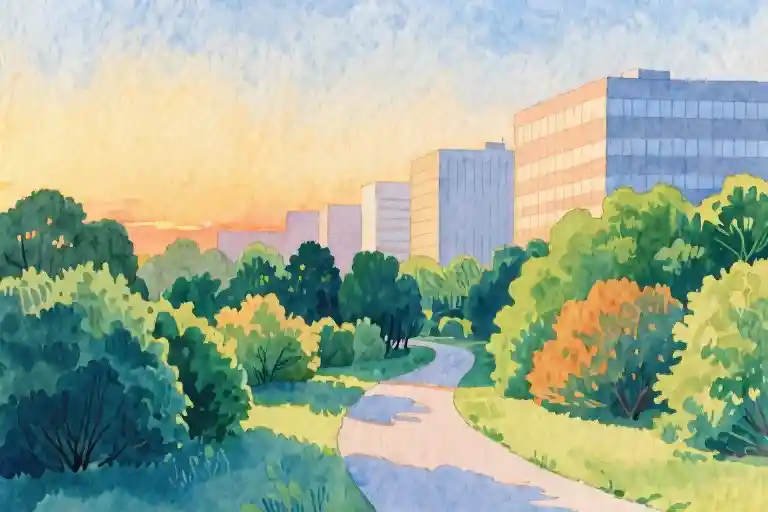I never wanted to be a mother. This wasn’t a sudden realization or a phase that passed with time—it felt as fundamental to my being as the color of my eyes or the way my brain processes the world. Perhaps it’s my neurodiversity, that unique wiring that makes me who I am, or maybe it’s this fierce independence that has always been my compass. While others spoke of biological clocks and maternal instincts, I listened to a different rhythm entirely.
Children themselves? I don’t dislike them. My niece and nephews bring genuine joy to my life, and I’ve developed meaningful connections with my partner’s three daughters—watching them grow into remarkable young women has been its own reward. But there’s a vast difference between appreciating children and wanting to raise one of your own. That distinction has always been clear to me, even when others struggled to understand it.
There was a time when I tried to convince myself otherwise. Love has a way of making us consider paths we wouldn’t normally walk, and I found myself actively trying for pregnancy during one relationship. Yet even as I went through the motions, my heart remained unconvinced. When those efforts didn’t succeed, the predominant emotion wasn’t disappointment but relief—a quiet confirmation that I’d been honest with myself all along.
Now at 49, standing at that threshold where choices become permanent and reflections grow deeper, I can say with certainty: choosing a childfree life was the right decision for me. This isn’t about rejecting motherhood as an institution or judging those who choose it. It’s about recognizing that parenthood, while transformative and meaningful for many, isn’t the only path to a fulfilled life. Some of us find our purpose elsewhere—in work that matters, in relationships that sustain us, in quiet mornings with coffee and the luxury of our own thoughts.
The journey to this clarity wasn’t without its challenges. Society has a way of making women feel that our worth is tied to our reproductive choices, that something must be missing if we don’t feel that pull toward motherhood. But what I’ve learned is that knowing yourself—really knowing what brings you contentment and what doesn’t—is perhaps the most radical act of self-love a woman can practice.
My life is rich with connections that matter, work that fulfills me, and a peace that comes from living in alignment with my deepest truths. That doesn’t make my choice better than anyone else’s—just authentically, completely mine.
It’s Not Just Me
When you make the choice to live child-free, there’s a peculiar loneliness that sometimes settles in during quiet moments. You look around at family gatherings, scroll through social media feeds filled with baby announcements and school photos, and wonder if you’re the only one who stepped off this well-trodden path. That feeling of being an outlier, the exception to some unspoken rule about how adult life should unfold—it can weigh heavily even on the most confident among us.
But here’s what I’ve come to understand through both personal experience and cold, hard data: we are far from alone in this choice. The narrative that everyone eventually wants children, that it’s some universal human instinct, simply doesn’t hold up against reality.
A 2025 University of Michigan study revealed something that might surprise those who assume childfree living is some fringe lifestyle: 21% of adult respondents stated they never wanted children. That’s more than one in five adults consciously opting out of parenthood. These findings aren’t some statistical anomaly either—researchers believe they reflect wider trends across the United States, indicating a significant cultural shift in how we view family structures and personal fulfillment.
What I find particularly compelling about this research isn’t just the growing numbers of childfree adults, but the quality of their reflections later in life. We’ve all heard the warnings—”You’ll regret it when you’re older,” they say, as if regret were some inevitable consequence of choosing differently. Yet the data tells another story entirely.
Among respondents aged 70 or older, those without children were actually less likely to express feelings of life regret compared to their counterparts with children. Let that sink in for a moment. The very thing we’re so often warned about—looking back with disappointment—appears to be less common among those who remained childfree. This challenges the fundamental assumption that parenthood is a necessary ingredient for a fulfilling life, or that choosing otherwise inevitably leads to some twilight years filled with longing and second-guessing.
This isn’t to say that parents are universally regretful—far from it. Most parents find profound meaning and joy in raising children. But the data does suggest that the childfree path can be equally valid and satisfying, perhaps even more so for those who consciously choose it.
These statistics matter because they help normalize what many of us have felt for years: that building a meaningful life doesn’t require following a single prescribed path. When you realize that millions of others are making similar choices, living full lives without children, it becomes easier to quiet that internal voice wondering if you’ve made some terrible mistake.
The cultural conversation around childfree living is shifting, albeit slowly. We’re moving from seeing it as some personal deficiency or selfish phase to recognizing it as a legitimate lifestyle choice—one that comes with its own unique benefits and challenges, much like parenthood itself.
What the numbers can’t capture, though, are the individual stories behind them. Each percentage point represents real people making thoughtful decisions about how they want to structure their lives, where they want to focus their energy and resources, and what kind of legacy they hope to leave behind. For some, it’s about creative or professional pursuits that would be difficult to maintain while raising children. For others, it’s about financial stability, relationship flexibility, or simply the preservation of personal peace and quiet.
Understanding that this choice is becoming increasingly common doesn’t eliminate all the doubts or external pressures, but it does provide a certain comfort. There’s strength in numbers, even when those numbers represent people who’ve chosen a path that often feels solitary. It reminds us that we’re part of a growing community of individuals redefining what family, purpose, and fulfillment can look like—no longer limited to traditional models but expanding to include diverse ways of building a life that feels authentic and meaningful.
So when that loneliness creeps in, when you find yourself wondering if you’re the only one who doesn’t feel that pull toward parenthood, remember the data. Remember that you’re not some statistical outlier but part of a significant demographic shift. Your choice is valid, it’s increasingly common, and according to those who’ve lived it longest, it’s not something you’re likely to regret.
The Childfree Dividend
Let’s talk numbers for a moment, because nothing clarifies life choices like seeing what they actually cost. Here in Canada, raising one child from birth to age seventeen runs about $293,000—and that’s before considering college tuition or the rising costs of everything from housing to healthcare. That figure represents more than money; it represents choices not made, opportunities not taken, lives not lived in certain directions.
I’ve watched friends allocate funds toward orthodontics and hockey camps while I directed mine toward passport stamps and retirement accounts. The financial freedom of a childfree life isn’t about endless wealth—I still worry about money like anyone else—but about having options that would otherwise be constrained by the substantial financial commitment of parenting. That freedom allowed me to retire early from nursing and pursue writing seriously, something that would have been far more difficult with dependents.
Time operates differently when you’re not working around school schedules or daycare availability. I remember a friend who delayed law school for eight years to be present for her daughter’s childhood. While she considers it worthwhile, that sacrifice represents nearly a decade of postponed dreams and professional development. Without those constraints, I’ve been able to travel during shoulder seasons when destinations are less crowded and more affordable, upgrade my nursing qualifications to access better career opportunities, and even take up the violin at forty-two—not because I expected to become proficient, but simply because I had the time and mental space to try.
Relationships transform when children aren’t part of the equation. My first marriage ended cleanly because we didn’t have to navigate custody arrangements or maintain contact “for the kids.” When I reentered the dating world after being widowed, I encountered fewer complications—not everyone wants to date someone with children, and that reality worked in my favor. Now in a long-term relationship, we’re discussing cohabitation without the complex dance of blending families. While many successfully navigate those waters, avoiding that particular challenge altogether has been one less stressor in our lives.
Physical autonomy represents another often-overlooked aspect of the childfree choice. While I genuinely believe all bodies tell important stories regardless of their appearance, I’m not sorry to have avoided the stretch marks, scars, and structural changes that often accompany pregnancy and childbirth. At forty-nine, gravity has been relatively kind, and everything remains approximately where it started. More importantly, I’ve been spared the pelvic floor issues and persistent back pain that many women my age experience as lasting reminders of childbirth.
There are trade-offs, of course. Women who never give birth face slightly higher lifetime risks for certain hormone-influenced cancers, as each pregnancy reduces overall estrogen exposure. But overall, my physical well-being and comfort in my own skin have likely benefited from not having children. If my choices eventually shorten my life span, at least I’ll have lived entirely on my own terms.
The childfree life isn’t without its financial planning challenges—there’s no automatic safety net for aging, no assumed caregivers for later years—but neither does parenting guarantee those things. I’ve spent twenty-five years as a nurse watching children fail to visit their parents in care facilities, and I’ve seen childfree elders surrounded by devoted friends and chosen family. The quality of our relationships, not their biological nature, ultimately determines our support systems.
What emerges from these practical considerations isn’t just a list of benefits but a broader understanding of how we allocate our most finite resources: time, money, and energy. The childfree path redirects those resources toward different kinds of richness—deeper friendships, more focused professional contributions, personal growth opportunities, and the quiet luxury of controlling one’s own schedule and space. It’s not better than parenting, just different in its rewards and demands, and for some of us, that difference makes all the difference.
The Challenges We Can’t Ignore
Let’s be honest about the hard parts. Choosing a child-free life comes with its own set of worries that keep you up at night, no matter how confident you are in your decision. The questions society loves to throw at us aren’t completely without merit—they just need better answers than the tired old “you’ll regret it” narrative.
That question about who will care for me when I’m older used to make me bristle with defensive answers. Now, at 49, I can approach it with the clarity that comes from decades of nursing experience. I’ve held the hands of elderly patients whose children visited daily, bringing photos and stories that lit up tired eyes. I’ve also comforted those whose families never came, their rooms filled only with the quiet hum of medical equipment and the occasional kindness of a staff member.
The truth is, having children provides no guarantee against loneliness in old age. The hospital wards and care homes where I’ve spent my career are proof enough of that. But I’d be lying if I said I never wonder about my own future. Will there be someone to notice if my medication changes seem off? Who will remember that I prefer my tea with exactly one sugar cube and that I hate the sound of televisions left on without anyone watching?
My solution isn’t to hope for a dutiful child that never existed. Instead, I’m building what I call my “circle of care”—my partner, my siblings, nieces and nephews, close friends who feel like family. We talk openly about our futures, about how we can support each other as our needs change. I’m saving aggressively for retirement, not just money for basic care but funds to maintain a life I’ll still want to live. I stay active, keep up with medical check-ups, and invest in relationships that go deeper than surface connections.
Then there’s the other question that surprised me by how much it stung when it first occurred to me: what happens to all my stories?
I was cleaning my bookshelf recently when I picked up that heavy ceramic plate from Morocco, its gemstones still catching the light like they did in that dusty shop where I bargained with a merchant who insisted it was “very special, just for you.” Next to it sits the vibrant painting from Bangkok, purchased from a street artist while backpackers danced to music I couldn’t identify. These aren’t just decorations; they’re physical manifestations of my life’s journey.
Who will want these things when I’m gone? More importantly, who will care about the stories behind them? My photo albums filled with pictures of people whose names would mean nothing to anyone but me, the journals from my nursing training, the wedding books from a marriage that ended but was still meaningful in its time.
This isn’t about materialism. It’s about the very human desire to feel that our existence mattered, that we left some imprint on the world. Children are one way to achieve that continuity, but they’re not the only way.
I’ve started thinking about legacy differently. Maybe it’s not about passing down objects, but values. The niece I took hiking and taught to identify bird calls now leads outdoor education programs. The nursing students I mentored are out there comforting patients with the same compassion I tried to model. The essays I write might resonate with someone questioning their own path long after I’m gone.
These realizations didn’t come easily. They emerged during those quiet moments when I allowed myself to sit with the discomfort of these questions rather than dismissing them. What I discovered is that the challenges of a child-free life aren’t reasons to reconsider the choice—they’re invitations to build a different kind of security, to create meaning in ways that might not be traditional but are no less valid.
The peace I’ve found comes from understanding that no life path is without its worries. Parents lie awake fearing for their children’s safety, wondering if they’re making the right choices. I lie awake thinking about old age and legacy. We all have our vulnerabilities; they just wear different faces.
What matters isn’t avoiding these concerns altogether, but building a life robust enough to meet them when they arrive. For me, that means nurturing relationships that are chosen rather than obligatory, creating work that outlives me, and finding comfort in the knowledge that a life well-lived is its own reward, regardless of who remembers the details.
Finding Meaning Beyond Bloodlines
The question of legacy used to keep me up at night. Not the practical matters of inheritance—I’m confident someone will want the house and bank account—but the emotional weight of all these artifacts that make up my existence. That heavy ceramic plate from Morocco, studded with semi-precious stones I haggled for in a Marrakech souk. The vibrant painting acquired from a Bangkok street artist amid the chaotic energy of Khao San Road. These aren’t mere souvenirs; they’re physical manifestations of moments that shaped me.
I’ve come to realize the ache isn’t really about the objects themselves. When I’m gone, I won’t care whether my photo albums end up in an estate sale or, worse, a dumpster. The real question beneath the surface is far more profound: Who will my life have mattered to?
Our culture often equates legacy with biological continuity, as if passing along DNA automatically confers meaning. But I’ve witnessed enough family dynamics through my nursing career to know children are no guarantee of being remembered well—or remembered at all. I’ve cared for elderly patients whose children visited daily, but also those who hadn’t seen their offspring in years despite living in the same city.
Meaning doesn’t have to flow through bloodlines. I’ve been building mine through relationships that choose me as much as I choose them. My partner’s daughters, though not biologically mine, have become recipients of stories and values I hope to pass along. My nieces and nephews know they can always come to Auntie for unconventional advice and unwavering support. The close friends I consider chosen family—we’ve seen each other through divorces, career changes, health scares, and personal triumphs.
Professional contributions form another strand of this tapestry. Twenty-five years in nursing means I’ve touched thousands of lives, sometimes literally. There are former patients who remember the nurse who stayed past her shift to hold their hand, or the family member I comforted with a cup of terrible hospital coffee and genuine compassion. These moments ripple outward in ways I’ll never fully know, but they matter.
My writing creates another layer of legacy. Words outlive us, capturing perspectives and experiences that might resonate with someone years from now. Maybe a young woman questioning whether she wants children will stumble upon my words and feel less alone. Perhaps a man considering vasectomy will find validation in someone else’s journey. These connections across time and space satisfy that human desire to leave something behind.
Volunteering at our local community center introduced me to teenagers hungry for mentorship from adults who aren’t their parents. I never expected to become the person a seventeen-year-old would confide in about college applications or relationship troubles, yet here I am—showing up with no biological obligation, just genuine care.
Financial resources that might have gone toward orthodontics instead fund scholarships for nursing students from underrepresented backgrounds. It’s a quiet legacy, one that won’t carry my name forward but will help others move forward in their own lives.
The environmental impact of choosing not to add another human to an overburdened planet brings its own satisfaction. My carbon footprint remains significantly lower than it would have with children, and that feels like a meaningful contribution to future generations—even if they’ll never know my name.
What I’m building isn’t the traditional, linear legacy that moves neatly from one generation to the next. It’s more like a mosaic—pieces of influence scattered across relationships, professions, communities, and even strangers who encountered some small kindness. It’s messier than the nuclear family model, but no less valuable.
This approach requires active intention. Biological parenthood comes with built-in structures for legacy-building: bedtime stories, family traditions, passing down heirlooms. Without those automatic pathways, I must create my own. I write letters to loved ones not meant to be opened until after I’m gone. I share stories with younger relatives about our family history. I’m deliberate about what values I demonstrate through daily actions.
The satisfaction comes not from some grand, permanent memorialization but from knowing I’m living aligned with my values right now. If my life has mattered to the people I’ve loved well, the patients I’ve cared for compassionately, the causes I’ve supported—that feels like enough.
Maybe everything I own will eventually be dispersed without ceremony. But the intangible legacy—the kindness extended, the perspectives shared, the lives touched—that can’t be sold at an estate sale or tossed in a dumpster. It exists in the emotional architecture of relationships I’ve built, and that seems like the only inheritance truly worth leaving.
The Choice Is Ultimately Yours
Parenthood is often portrayed as an unconditional source of joy, but the reality is more nuanced. I’ve known parents whose adult children became estranged, sometimes for years without contact. Others watched their children struggle with severe mental health challenges or addiction—heartbreaking situations where love alone couldn’t prevent the pain. These parents would undoubtedly say they still love their children deeply, but I sometimes wonder if they might have made different choices knowing what they know now.
Meanwhile, my childfree life has brought me profound satisfaction in ways I couldn’t have predicted when I first made this choice. My days are filled with work that matters to me, relationships that nourish me, and the quiet contentment of living according to my own values. The freedom to pursue what genuinely brings me happiness—whether it’s spontaneous travel, career advancement, or simply a quiet morning with coffee—has created a life that feels authentically mine.
Life’s complexity means there are no perfect choices, only different sets of trade-offs. The important thing isn’t which path you choose but whether it aligns with who you are and what you value most. For some, that means raising children; for others, it means building a different kind of legacy. Neither choice guarantees happiness, and neither precludes it.
Childfree doesn’t mean joy-free. It simply means finding fulfillment through different channels—through work that impacts your community, through relationships that don’t follow traditional family structures, through contributions that leave the world slightly better than you found it. My life matters to the patients I’ve cared for, the family I’ve supported, the partner I love, and the friends who form my chosen family. These connections may not follow biological lines, but they’re no less meaningful.
The cultural narrative often suggests that choosing not to have children is choosing a lesser life, but that perspective misses the fundamental truth: There are multiple ways to live a meaningful, joyful existence. The most radical choice we can make is to honestly acknowledge what we truly want from our limited time on this planet—and then build our lives around those authentic desires rather than external expectations.
My mornings begin with coffee in a quiet house, my days unfold according to my own priorities, and my evenings often involve connecting with people who matter to me. This isn’t a consolation prize for missing out on parenthood; it’s the life I actively chose and continue to choose every day. At nearly fifty, I can say with certainty that giving myself permission to want what I actually wanted—rather than what I was supposed to want—was one of the most liberating decisions I’ve ever made.
My days are filled with work that feels meaningful, with people who genuinely matter to me, with travels that stir excitement in my bones, and with quiet mornings where the only sound is the gentle hum of my coffee maker. There is no grand, universal answer to the question of how one should live—only the quiet, personal truth of what brings you peace.
Life, in all its messy complexity, does not offer guarantees. Parenthood is no more a promise of happiness than remaining childfree is a sentence to loneliness. The beauty lies not in the path itself, but in the authenticity of the choice. It is the courage to shape a life that reflects your own values, your own definition of fulfillment, even when it diverges from the well-trodden road.
So here I am, at the edge of fifty, certain of this one thing: child-free does not mean joy-free. It simply means my joy looks different. It is found in the freedom to define my own legacy, in the connections I nurture by choice rather than obligation, and in the profound contentment of a quiet morning that is entirely, blessedly, my own.





